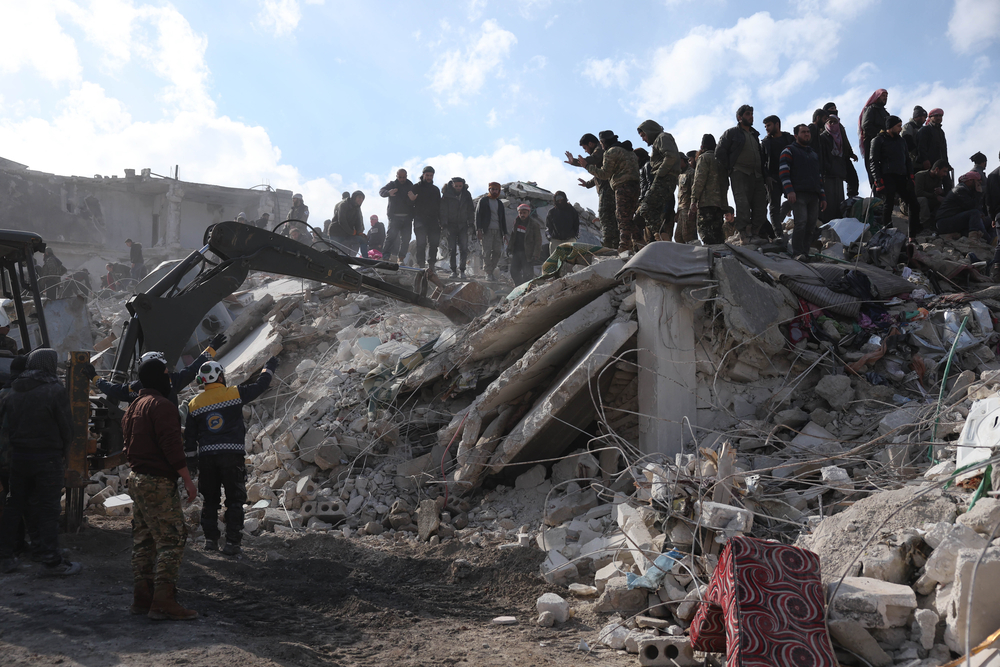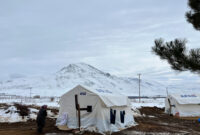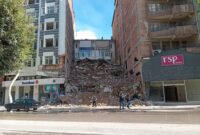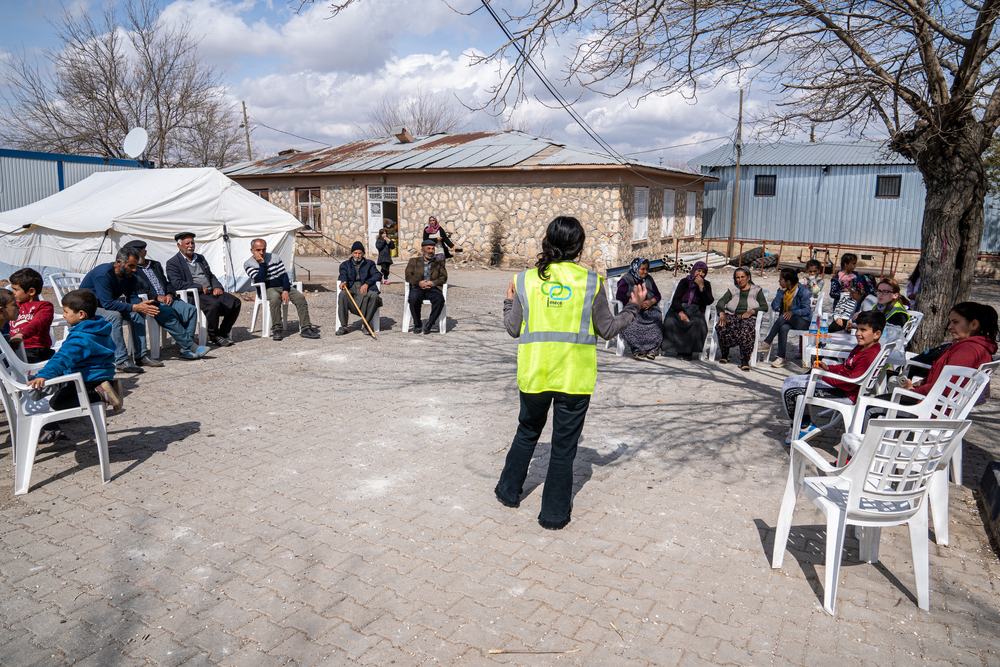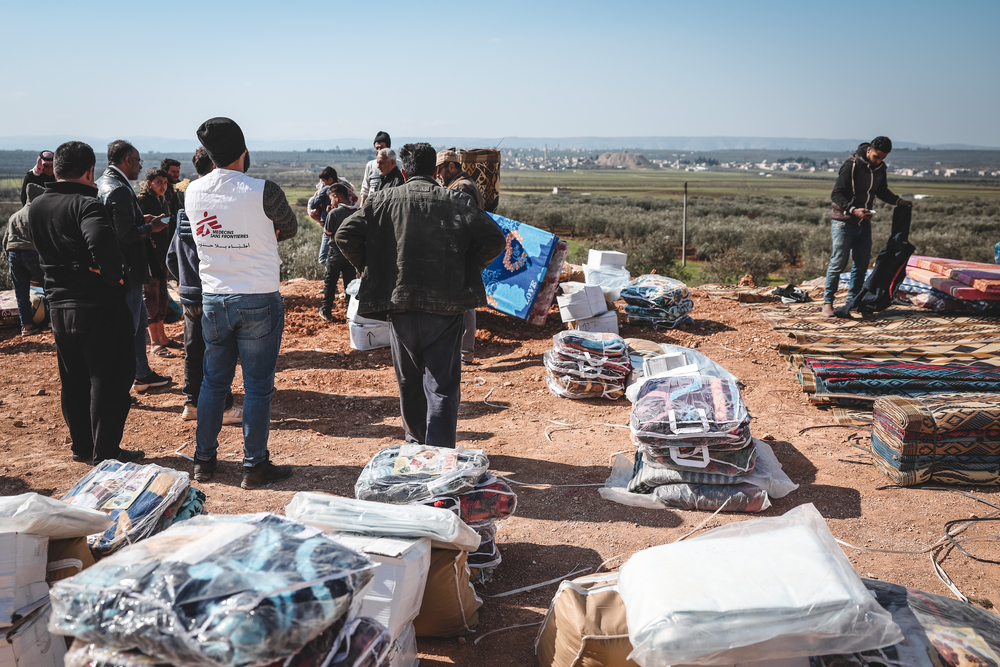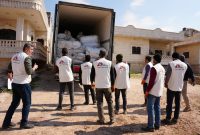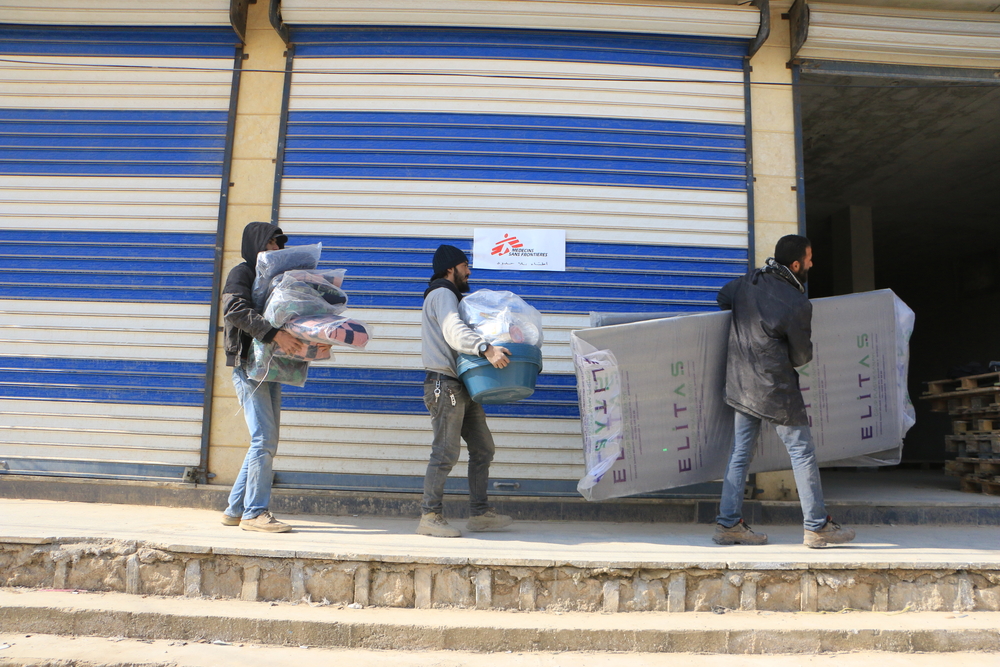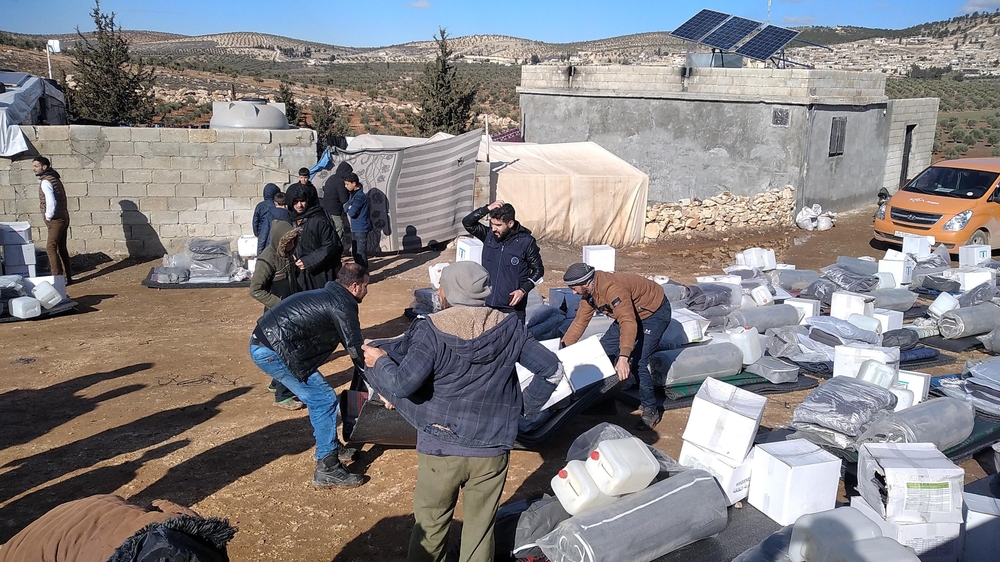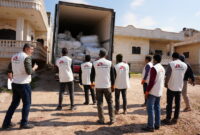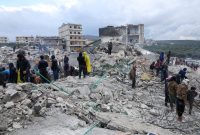Earthquakes in Syria: “There is no time to waste in reaching the people of this region”
According to the latest estimates, the earthquakes that hit Türkiye and Syria have killed more than 21,000 people and injured tens of thousands more. Doctors Without Borders/Médecins Sans Frontières (MSF) works with affected populations in northwestern Syria with nearly 500 staff members. At the time of the disaster, MSF was already there, supporting local communities in the northwest, victims of more than 12 years of war. Latest updates on the situation with Ahmed Rahmo, MSF project coordinator in charge of the Idlib region and based in Gaziantep in Türkiye.
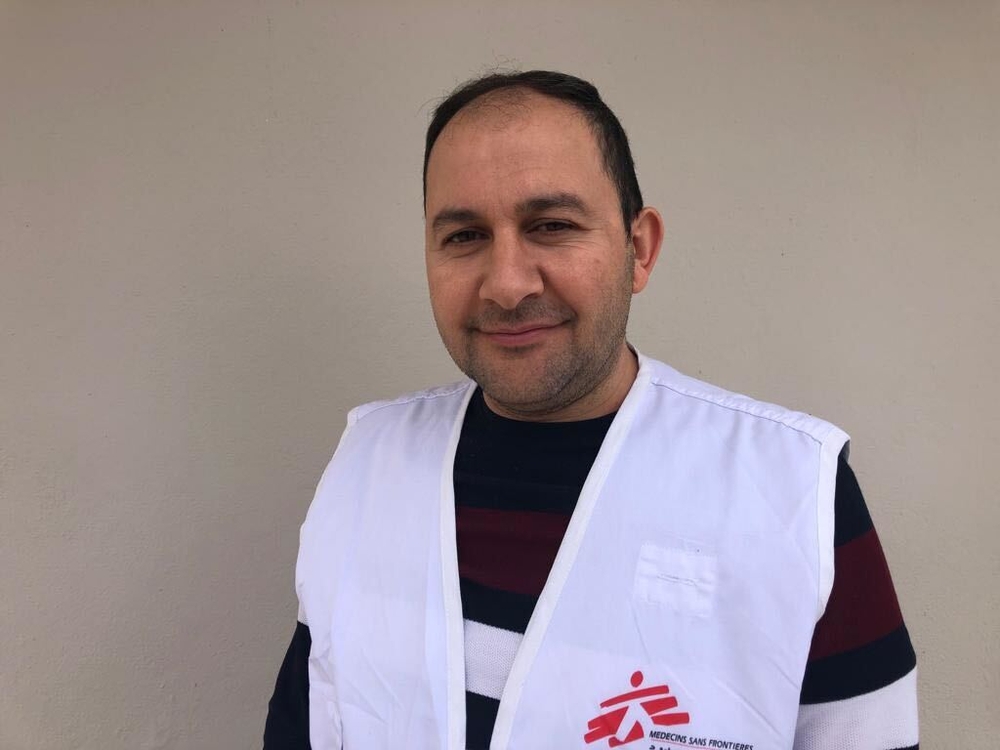
“Four days after the earthquakes, MSF teams have continued their emergency response in northwestern Syria. We have received very little international support from the outside so far. Our work is essential, but it is also a drop in the ocean: the needs are immense in the region. We are addressing basic needs, providing food and water and providing medical care.
Given the lack of funds for humanitarian aid and difficulties to access this landlocked area, most Syrian hospitals were already facing many difficulties and shortages. Moving supplies and medicines from Türkiye into Syria was already a challenge, as Bab al-Hawa was the only crossing point for humanitarian convoy to northwest Syria and was subject to political tensions before the disaster.
After the earthquakes, this crossing point was closed for three days and only reopened yesterday, with very little traffic so far. Humanitarian organizations working inside Northwest Syria have dipped into their emergency stocks that were on site. There is no time to waste in reaching the people of this region, as the delivery of supplies is crucial. Two million people are living in displacement camps, often in tents exposed to the wind.
Just a week before the earthquake, a snowstorm had hit the area. Living conditions have significantly deteriorated. We have made donations of heating equipment, blankets and mattresses, all essential in these weather conditions, as temperatures are reaching negative figures at night. Today, an increasing number of people are forced to join these camps, and reception centers have been opened to accommodate more displaced people. There are 15 in the Idlib region for now, and we have launched mobile clinics to offer medical consultations in five of these. We will expand this activity in the coming days.
MSF teams have also intervened by donating medical items to more than 10 hospitals. We are responding to a variety of needs, which relate in particular to traumatology, obstetrical care or dialysis. We have also sent some of our medical staff from our hospital in Atmeh, which specializes in the care of burn victims, to support other hospitals, whose staff have been overwhelmed by the number of injured. Our surgeons were able to help them. We have also mobilized our ambulances to be used for transfers between hospitals.
Every day, our teams share tragic stories with us. Some of the survivors, when not hospitalized, have lost everything: their homes, their clothes, access to food, sometimes part of their family, their money, everything… and now they live in tents. They need clothes and hygiene products, they need water and food, they need everything.

Humanitarian organizations must also protect these populations against cholera, which has recently spread in the region since last September and which proliferates in such precarious conditions and lack of access to clean water. MSF teams has tackled this disease in the past months, but our organization can’t cover all the need, especially as the general situation is worsening. For many inhabitants of this region, living conditions have become even more dire.”
